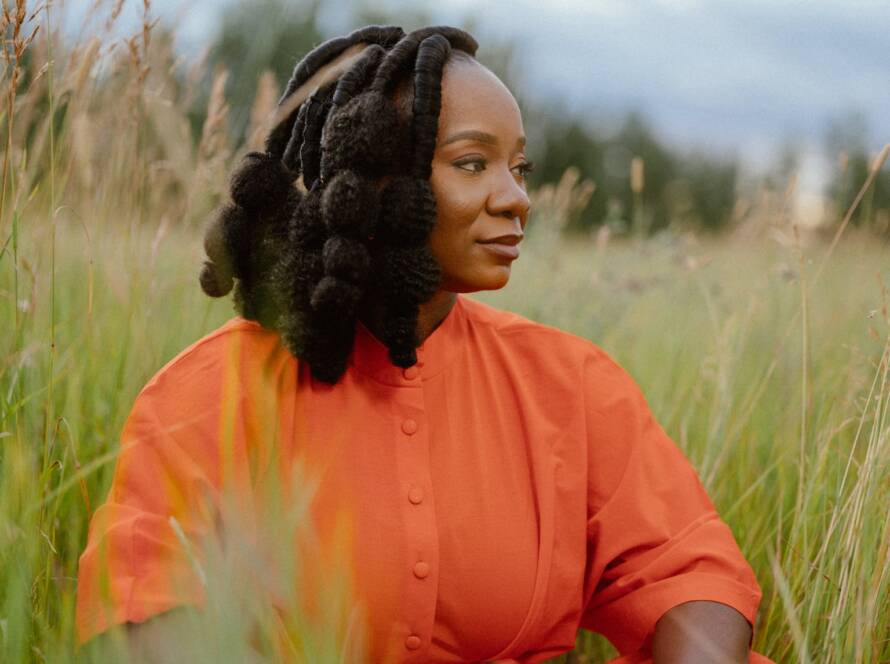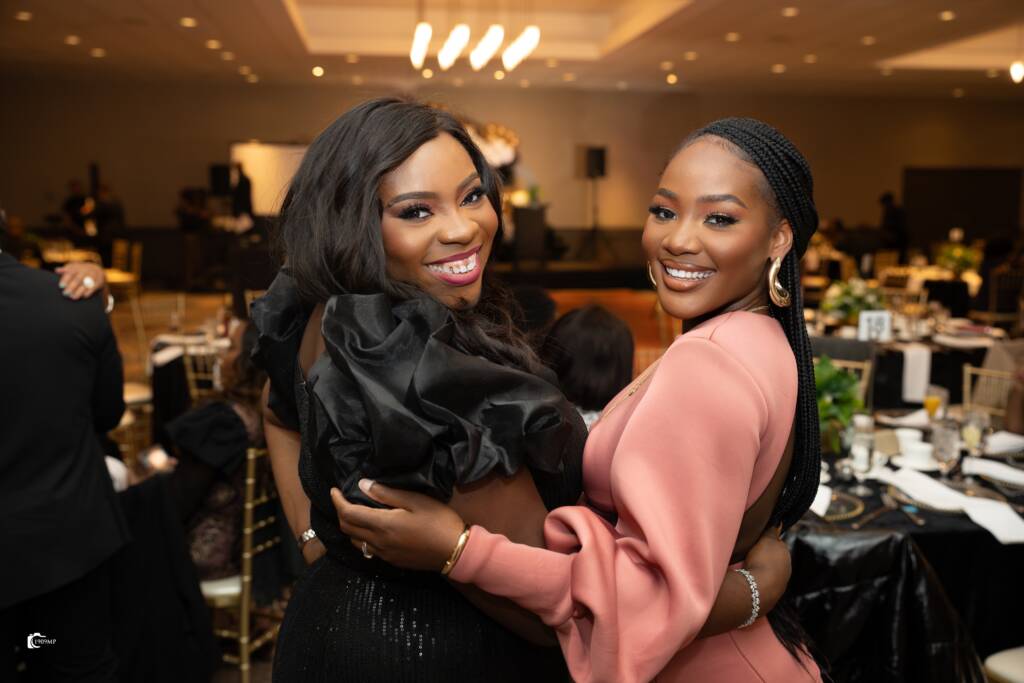My journey began in the oil-producing and refining fields and communities in my colonized islands of Trinidad and Tobago. As a child in a British educational system, I learnt everything about Shakespeare, British values, and little about self and heritage. Arriving in Toronto for post-secondary school was a rude awakening. So, I did my first degree in history and studied the postcolonial liberation movements in Africa and the Caribbean, creating a framework for self-understanding.
While working as an administrator at the University of Alberta, I navigated a few boundaries that affected Black women, as students and academic staff. I understood that sometimes, it only takes one person in the right position to open a door or ease a burden. That has shaped how I move, aware that my presence could offer possibilities for another Black woman.
What Sisterhood Means To Me
Throughout my life, organizational membership has offered me a platform to engage with women across generations, backgrounds, and experiences, and to treat each one with the respect she deserves. I’ve always believed that no woman is too young to lead or too seasoned to learn. Each of us carries a different story, and those differences, when embraced, become our collective strength.
In the face of a dominant society that often ignores or dismisses our contributions, our solidarity becomes more than symbolic. It becomes essential. We cannot afford the luxury of division. When we stand together, rooted in mutual respect, we create space for everyone to thrive, not just survive.
True sisterhood shows up every day. It’s how we speak to one another, advocate for each other, and pass on opportunities without gatekeeping. In these spaces, I’ve seen how powerful it is when women build each other up, not out of charity, but out of deep recognition that we rise higher when we rise together.
Lifting as You Climb
For community-based organizations to flourish, intergenerational collaboration is essential. Each generation brings something vital: experience, innovation, and perspective. Lasting progress happens when these are exchanged, not siloed. Legacy isn’t built by one group alone; it requires shared vision and mutual respect.
During my time as president of CARIWEST, I learned that leadership goes beyond guiding others. It extends into creating space. Sometimes that meant listening more than speaking or stepping aside to let fresh ideas take root. True leadership requires humility, foresight, and the courage to pass the baton when the time is right.
Holding on too tightly to power doesn’t preserve a legacy; it stifles it. But when we invest in others and trust them to lead, we build something stronger than ourselves. The baton is never ours to keep. It’s ours to carry with purpose and then pass on with confidence.
Cultural Roots, Collective Power
The Caribbean is a region of some 29 Dutch, French, Spanish, English, and other territories of people of different mixtures and historical experiences. I have grandparents from different island territories and recognize the interrelationship of the region. I always approach this question with humility, respect, and admiration for my sisters’ contributions to building a better world.
Our shared Caribbean heritage strengthens the bonds of sisterhood. It reminds us of our resilience and creativity. Whether through language, music, food, or ancestral memory, we are constantly being called back to community. And in that space, we find strength. As an advocate of grassroots history, I believe it is always relevant to understand the past, from whence we came, the evolution of our identities, our values, and our history, to understand the path that lies ahead. At the intersection of Caribbean and Canadian history and values, our younger women, on whose shoulders our future rests, must be given their own space to flourish.
Social and cultural interrelationships are different, and self-identity may be different. Different demands may be made of younger Caribbean women in the current diaspora. They have to be given space to thrive in their new norms. Evolution is not a betrayal of tradition; it’s its natural continuation.
Power and Presence at Global Tables
When I find myself at decision-making tables, I carry more than my voice. I carry the weight, wisdom, and vibrancy of Caribbean women. I represent our experience with integrity, always remembering that the Caribbean is not a monolith. We are a tapestry of languages, histories, struggles, and triumphs. Our strength lies not in sameness, but in the richness of our diversity.
I speak with reverence for the ancestors who endured, resisted, and survived so we could arrive at these rooms. I speak with pride in our culture: our music, food, faith, and fire. And I speak with hope for the future we are still shaping. Being present at these global tables is not about simply being seen. It’s about being heard, being felt, and being respected. It’s about bringing our stories, our strategies, and our solutions into spaces that often overlook them.
And when I speak, I remind those in the room that Caribbean perspectives are as valid as they are vital. Our lived experiences offer insights into resilience, innovation, and community that global movements can learn from. Power at the table is in making that seat matter for the people and places we represent.
Building a Network That Lasts
For women’s organizations to be transformative and representative, they must reflect women’s agendas in their bylaws and principles, in their form and character. When we build together, when we represent together respectfully, our collective synergies make our communities strong. Borders: physical, social, or mental, are transient. They only exist for the period that we allow.
As strong, experienced, resilient women, we have the power to organize or advocate for change, for the removal of hindrances to our efforts to build strong, united, caring organizations. As women who have long mentored others and held key responsibilities in community organizations begin to transition into new phases of life, the baton must be passed with confidence and care.
Each generation can learn from the previous, from its successes and failures. The past allows us to have that inspection and introspection to help prepare for the future. The recorded word, the history, will help prepare us all.
That is the work. That is the call.




